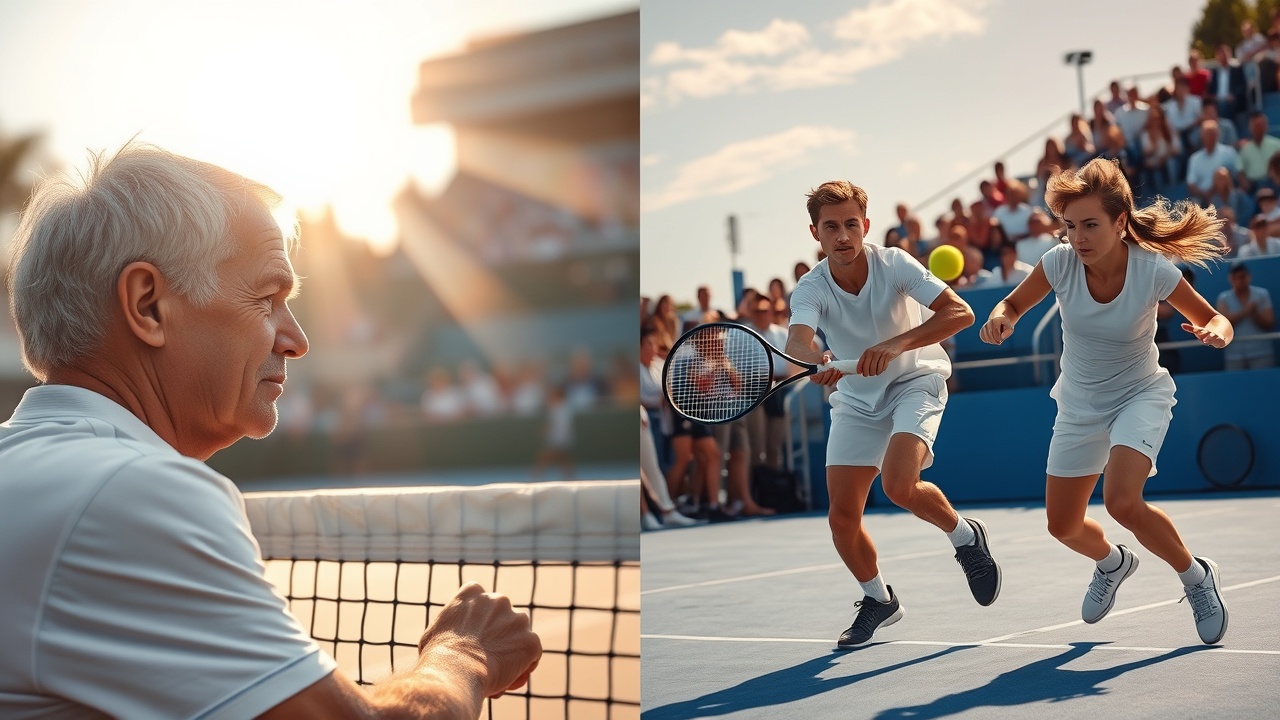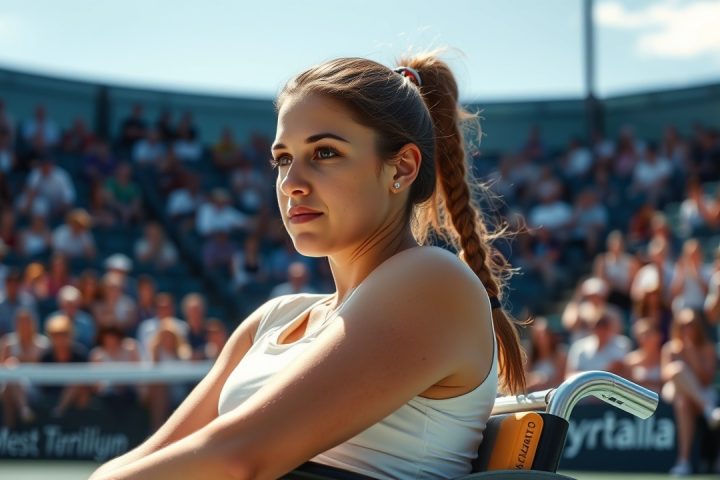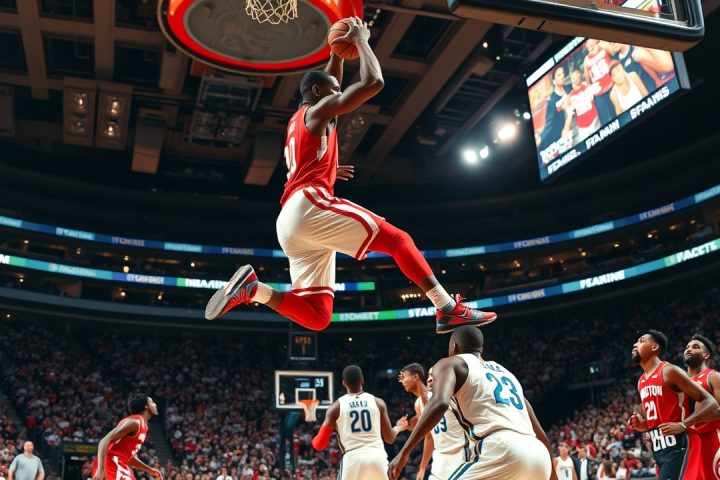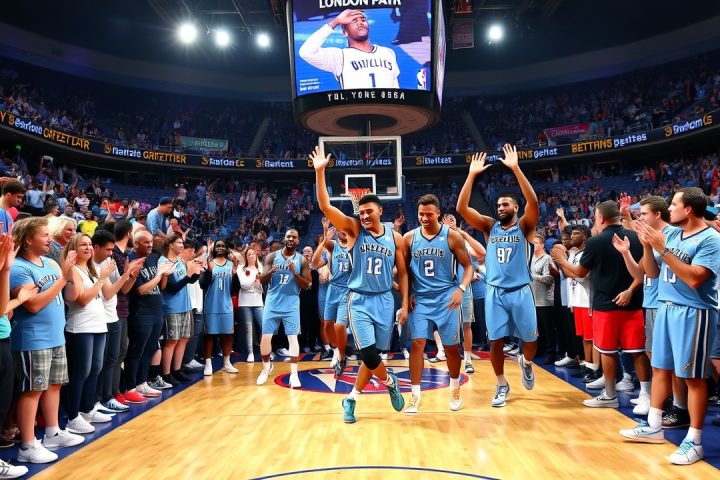Challenges for the “Sandwich Generation” in Men’s Tennis
PARIS, ROLAND GARROS — The current landscape of men’s tennis is increasingly challenging for the so-called “sandwich generation,” a group of players born in the 1990s who initially had high expectations. This generation finds itself overshadowed by the legendary trio of Roger Federer, Rafael Nadal, and Novak Djokovic, whose dominance has left little room for others to thrive. Just as it seemed the sport might open up for younger talent, the emergence of Carlos Alcaraz and Jannik Sinner has stifled the ambitions of these once-promising players.
Declining Opportunities
As the French Open unfolds, the chances of these 1990s-born athletes reclaiming their place among the elite seem to diminish by the day. Daniil Medvedev, the sole Grand Slam champion of the bunch at age 29, suffered a surprising defeat to Cameron Norrie, ranked No. 81 in the world. Meanwhile, Casper Ruud, 26, fell to world No. 41 Nuno Borges in four sets, revealing post-match that he has been grappling with a knee issue for the past two months. Stefanos Tsitsipas, also 26 and a two-time Grand Slam runner-up, faced an upset against obscure Italian player Matteo Gigante, who has never previously cracked the top 100.
As the second round of the tournament comes to a close, others from this cohort, including world No. 3 Alexander Zverev, 28, and No. 15 Andrey Rublev, 27, survive the competition, yet both appear to be struggling. This predicament highlights the harsh reality: for many in this generation, their window of opportunity never fully opened, leaving them on the verge of being eclipsed.
Limited Success
Only two players born in the 1990s, Medvedev and Dominic Thiem, have achieved Grand Slam success, and even Thiem has since stepped away from the sport, citing the demands of keeping pace with influential legends like Federer, Nadal, Djokovic, and Andy Murray. This younger cohort entered the scene around the mid-2010s at a time when men’s tennis lacked a promising future, as it had thrived largely due to the rivalries of these legendary figures. Among those touted as the next big stars were Zverev, Tsitsipas, Medvedev, and the now-injured Matteo Berrettini. While Ruud and Rublev never enjoyed the same hype, Ruud’s early appearances in three Grand Slam finals shifted expectations.
Despite collecting significant accolades, including Medvedev’s 16 weeks atop the ATP rankings and his victory at the 2021 U.S. Open, the rest of the generation seems to be drifting further from the summit of the sport. The Big Three have amassed 66 Grand Slam titles collectively; Alcaraz and Sinner have already taken five majors amongst themselves. In stark contrast, the individual achievements of Medvedev pale, with just a fraction of the weeks at No. 1 compared to the extraordinary totals achieved by Federer, Nadal, and Djokovic.
Pressure and Adaptation
The pressure of unmet expectations weighs heavily on many players in this age group. Medvedev has expressed frustrations regarding the heaviness and slowness of the tour’s balls, which he believes inhibit his capacity to land powerful shots unless faced with top competitors like Alcaraz or Sinner, known for their explosive play. His mid-match string adjustments during the loss to Norrie reflected a desperate attempt to regain an edge.
“The men’s tennis field has evolved into a more formidable battleground than it was during my peak in 2021.” – Stefanos Tsitsipas
Tsitsipas echoed these sentiments, noting how players have matured and diversified their gameplay, reinforcing the importance of adapting to the modern demands of the sport. This quest for improvement has led Tsitsipas to tweak his equipment, transitioning to a new racket that ultimately caused him physical issues and returned him to his prior model. Following his loss to Gigante, Tsitsipas is set to fall out of the world’s top 20, marking a significant downturn for the player who has consistently occupied a higher rank.
Reflections from the Court
Meanwhile, Ruud has lamented the speed of the sport’s advancement. His earlier struggles against the impactful games of Alcaraz and Sinner prompted him to reevaluate his approach to play. Despite securing a title at the Madrid Open, defeating Sinner proved overwhelmingly challenging, exemplifying the generational leap he’s grappling to overcome.
Rublev finds himself in similar turmoil, searching for ways to manage the frustration fuelled by his own inconsistent performances. After a narrow victory against a low-ranked opponent, he acknowledged the dominance of his younger counterparts while remaining committed to improving his game.
Zverev has faced unique challenges as well, having recently reached significant finals but still feeling the distance from capturing his first Grand Slam title. He expressed later how he wished the shadows of the legends had not lingered over his career, believing he could have claimed titles of his own had they not been present. Yet, he simultaneously acknowledged the privilege of competing against such iconic figures.
Conclusion
The struggles faced by Zverev and his contemporaries mirror the experiences of past generations, and unfortunately, similar fates will eventually befall Alcaraz and Sinner. For now, the joy of competing feels overshadowed by the pressures and realities of an unforgiving sport that continues to advance.




